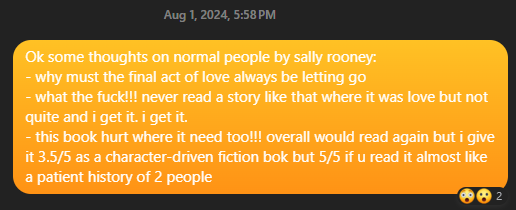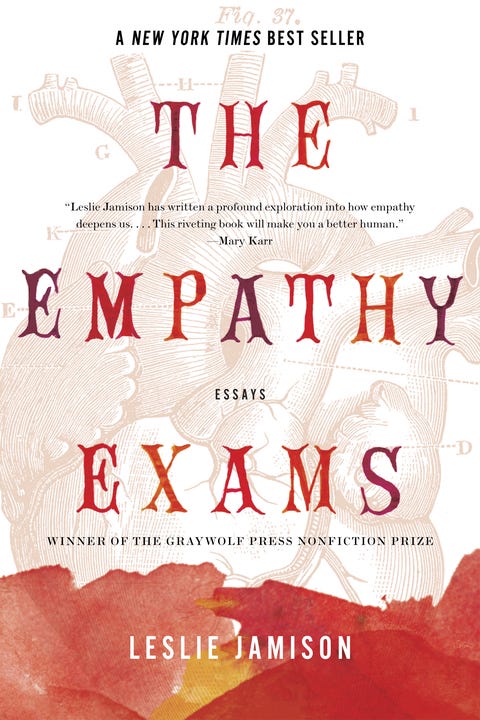To be measurably good
I am so acquainted with the perspective of my own failure that it is almost as though I expect it.
Background
In this week’s newsletter, I talk about the concept of being good enough, reflect on what it means to be successful, and try t figure out how to measure my worth.
This week’s newsletter is also dedicated to postcardsbyelle, whose newsletters truly inspired me to get into Substack. I don’t know if you’ll ever see this, but I adore your work a lot! <3
Significance
“If your numbers are high enough or good enough, then maybe you are enough.”
For me, the hardest thing about medical school is studying.
Medical school is full of concepts. You read a book, watch a video, or listen in class, and that is what you need to memorize or absorb. What really bothers me most is how I can’t see the output of knowing that I understood something. I can’t quantify my knowledge fully until the exam, and because it is a multiple-choice exam, I can’t help but be left with the constant feeling of knowing I could have done better. I always could have done better.
But I also know that I am better than just a multiple choice exam given to assess only half of what I really know. I’ve memorized whole tables that never showed up on exams, and made mnemonics for long sequences of information that I never used. I know that somehow I have done better than the exam makes me out to be, but I am somehow still worse off because it is the score that serves as the only quantifiable measure of my worth and effort.
I recently encountered the term “measurably good” in a Substack article by postcardsbyelle that partially discussed Emily Henry’s Happy Place. The article included a paragraph from the book that talks about how grades and money are ways to quantifiably measure your worth or success because there are numbers. If your numbers are high enough or good enough, then maybe you are enough.
I have reflected a lot in the last months on the fleeting and terrifying concept of ever being enough. I have done well enough in my academic career to make it to my second year of medical school at twenty-one years old, but I don’t think I have shown up to an exam since elementary school with the feeling that I’ve studied enough. I’ve gotten scores for exams that range in the forties out of fifty, wondering why I missed just a few points that could have boosted my grade by the tiniest bit. I am so acquainted with the perspective of my own failure that it is almost as though I expect it. With every bad score I get I am no longer dismayed, and with every good score I earn I am still disappointed.
In my twenties, I think a lot about how this mindset has bled into my mental health and my perspective of myself. I worry a lot about whether my version of being good enough will actually be enough to be successful. Because even though scores and grades are quantifiers, it is a tale as old as time that this might not be enough for you to really succeed in life.
Success means many things, as I’ve been told to death by my elders. Even while they insist that success is being happy and comfortable in my life, I can’t help but know that they expect other things too that are still supposed to measure how happy I will really be in my adulthood, like the stability of my job or the money in my bank account. Perhaps that is why I have never felt secure in what it means for me to be enough. There is no future ever secure enough to guarantee my happiness to be measurably good. The most I can really do is try enough today, in the hopes that I will still be enough tomorrow.
Learning to be satisfied with myself is not a tribulation I expected to have in my twenties, but every day is a new attempt. Every day in medical school is a day for me to study and take another quiz or exam and walk out knowing that I did my best. And even though “my best” is not a quantifiable measure by any means, I hope I am familiar enough with the exhaustion from my failures to understand what it means to be exhausted with my successes.
And one day, I hope I will have done enough to know that I am enough. That will be the day I will know that I am happy.
Literature Review
Every Heart a Doorway by Seanan MacGuire
”If her hair was white now, and her skin was soft with wrinkles and memories, well, that was no matter at all. There was still something unfinished around her eyes; she wasn’t done yet. She was a story, not an epilogue. And if she chose to narrate her own life one word at a time as she descended the stairs to meet her newest arrival, that wasn’t hurting anyone. Narration was a hard habit to break, after all.
Sometimes it was all a body had.”
I am currently reading the Wayward Children series by Seanan MacGuire. So far, I have just finished the third book and I am still recommending them to all my friends. Aside from each book being only about 200 pages long and a stand-alone from the previous novels, each character is encapsulated so wittily and with such fun humor that I genuinely feel like a kid again. I also love it when characters are so distinct from one another and are easy to tell apart, even just based on dialogue. MacGuire writes such diverse characters that I can still relate to and understand, and I love being able to see everybody’s different experiences. This is the only book series where I fully understand being stretched to this length, as the world has so many stories to tell. To me, this is the young adult fiction that is perfect for today’s generation of young readers.
Normal People by Sally Rooney
”I don’t know what’s wrong with me, says Marianne. I don’t know why I can’t be like normal people.”
I finished Normal People by Sally Rooney a couple of months ago and I am still thinking about it. While I understand why and how this has gotten mixed reviews, the screenshot of my conversation with my friends below explains my feelings towards it, and why I think it was a worthy read, especially if you don’t treat it like a romance book (which has never been my preferred genre anyway).
The Empathy Exams: Essays by Leslie Jamison
“Empathy isn’t just remembering to say that must really be hard—it’s figuring out how to bring difficulty into the light so it can be seen at all. Empathy isn’t just listening, it’s asking the questions whose answers need to be listened to. Empathy requires inquiry as much as imagination. Empathy requires knowing you know nothing. Empathy means acknowledging a horizon of context that extends perpetually beyond what you can see…”
I am in the middle of reading The Empathy Exams: Essays by Leslie Jamison, which is the first non-fiction book I’ve committed to annotating. I initially picked up this book after seeing snippets of the title essay The Empathy Exams, but I ended up reading the rest of the essays afterwards. So far, my favorite essay is The Devil’s Bait as I enjoyed its discussion of Morgellen’s disease, and I really appreciate any work that delves into science communication and public health issues. My least favorite was In Defense of Saccharine, as I never quite got the correlation of sugar and sentimentality. Perhaps that deserves a second read.
I also felt that this book was quite timely as I just performed my first physical diagnosis last month. I was incredibly nervous, and I kept thinking back to this essay and wondering how I can put into practice what I know in theory.
Bibliography
To Miz, who wrote an article on Medium and designed their own cover art for it and inspired me to try starting again
To Kate, who I’ve yet to reconnect with throughout the years, and whom I hope is living her best life of creation
And to Harry, who never fails to tell me that I am more than good enough.
Appendix








